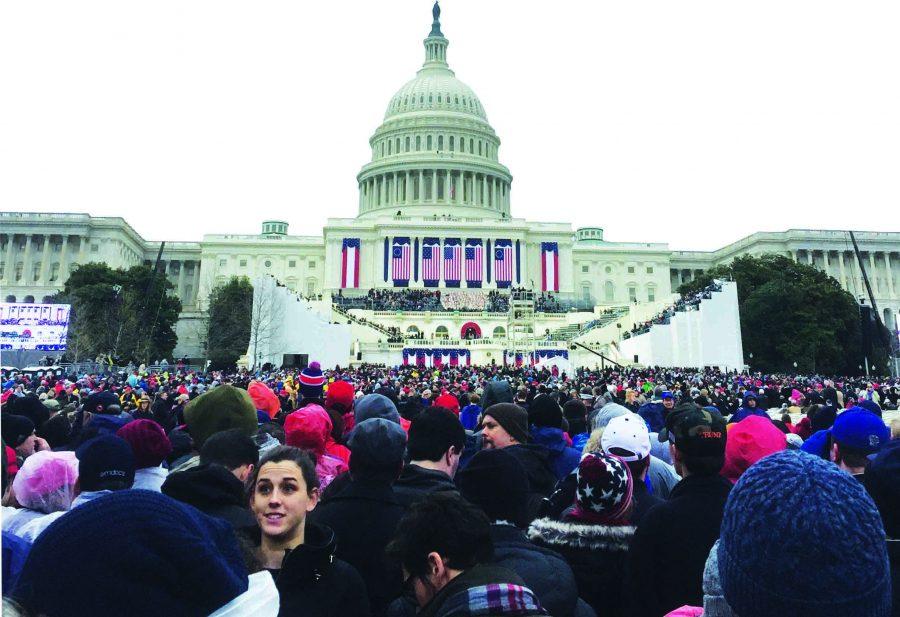A New Year, A New Era
Students’ various reactions to the 2017 Presidential Inauguration
On the morning of Jan. 20, 2017, hundreds of thousands of Americans lined up on the West Lawn of the U.S. Capitol Building and waited for nearly six hours in anticipation to watch Donald J. Trump take the Presidential Oath of Office.
Among the crowd of spectators stood senior Simon Quinby, who described the experience as nothing short of incredible.
“The environment was amazing. Everyone was excited to see him sworn in and to hear him speak,” Quinby said.
This year’s Presidential Inauguration began at noon with the official swearing-in ceremony. The ceremony entailed three different musical performances as well as readings from various faith leaders and the official oaths taken by Vice President Mike Pence and President Trump.
As is tradition, Trump took the Presidential Oath, promising to “preserve, protect, and defend the Constitution of the United States,” and was sworn in using the same Bible Abraham Lincoln used nearly 160 years ago.
“Travelling to D.C. to see him take the oath was such a cool experience,” Quinby said. “[The inauguration] made me excited to see what is to come from his presidency.”
Tickets to the inauguration were free and in high demand. Quinby won his tickets in a raffle from Senator Ben Sasse, with over 4,000 entries in the draw.
Quinby arrived in Washington D.C. Thursday afternoon and went to the inauguration early Friday morning. After going through two tight security checkpoints taking over an hour, Quinby joined others gathered on the West Lawn, feeling prideful.
“I was surrounded by thousands of people who all felt it necessary to see the peaceful transition of power,” Quinby said. “To see that many people come together really leaves me with an impact of pride in the country.”
After he was officially sworn in as President of the U.S., Trump gave his first speech addressing the American people as their appointed leader.
In his 17-minute long speech, Trump centered his words around the theme of putting “America First” in his policies while promising that “our country will thrive and prosper again.”
These words were televised across the country, reaching over 30.6 million people through their television screens, making Trump’s Inauguration the third largest ever viewed.
One viewer was junior Sierra Lancaster, who watched the Presidential Inauguration in her AP U.S. History class the same time Quinby attended the inauguration at Washington D.C.
“I thought that Trump’s speech was more eloquent than anything he had given previously; however, it still lacked true content and emotion,” Lancaster said. “I felt let down, as I was willing to give him a chance, and he failed in that plight.”
Trump closed out his speech with his famous campaign slogan, promising the American people again that “together, we will make America great again.”
These words have had an important impact on the population since they were first spoken, and repetition of them at the Presidential Inauguration was no exception.
“I thought the most inspiring part of Trump’s speech was at the end when he said we would ‘make America great again.’ All of the people in the crowd said it along with him at the end,” Quinby said.
Throughout the country, these infamous words have stirred debate on what they, and Trump’s administration, mean for the future of this country.
“A ‘great’ country isn’t only known for it’s military and power. It’s known for its people and how it cares for its people. Without a compassionate leader, I’m scared for this country’s future,” Lancaster said.
Although opposition exist, many Americans, like Quinby, still hold out hope for the following years.
“In my honest opinion I believe that the future is bright,” Quinby said. “I think [Trump] will take this country in the right direction.”
For better or for worse, the United States of America will continue to move forward into a new era, under new leadership.


